Originally posted by Bratot
View Post
In Prilep: "On the bridge young man are playing; one is not embarrassed when questioned. "I am Serb, but those "he points to the others" are Macedonians" - "Where are you from?" - "From Nish". And in Resen: "Swarms of boys around the car. "Well, what are you? "He looks up shy and uncomprehending. "He is a Turck", yelled the Chor. "Aha? and you (to the Chore)?"-"Macedonians!", streight out, like out of the gun." Also Edmond Bouchie de Belle stated in 1920, that, if a slavic Peasant from the region of Ostrovo (in Greece) or Monastir (Bitola) was questioned what he is, in nine of ten cases the answear was Makedon. His conclusion was: "Un observateur de bonne foi classera donc a part cette population a laquelle le non de "Slaves Macedoniens" ou simplement de "Macedoniens" parait le mieux convenir". (Translation: An honest observer will classify this population as "Slav Macedonians" or simply "Macedonians" as best suited.)
R.A. Gallop, the third Secretary of the britisch embassy in Belgrade spent one week in April 1926 in Vardar-Macedonia and wrote: "those of the later [Macedo-Slavs] that I ment were equally insistent on calling themselfs neither Serbs nor Bulgarians, but Macedonians. [...] There seemed to be no love lost for Bulgars in most places. Their brutality during the war had lost them the affection even of those who before the Balkan War had been their friends." Oliver C. Harvey from the britisch foreighn office visited the greek and yugoslav part of Macedonia on April and Mai 1926 and concluded: "Tha slavophone population of Serb Macedonia definitely regard themself as distinct from the Serbs. If asked their nationality they say they are "Macedonians", and they speak the Macedonian dialect. Nor do they identifiy themself with the Bulgars, although the later seem undoubtedly to be regarded as nearer relatives than the Serbs". To the slavic population in the nord-west of Greece he concluded: "These are of course constitute the much advertised "Serb mnority" [...] But they are no more Serb than the Macedonians of Serbia-they speak Macedonian, and call themselfs Macedonians and sentimentally look to Bulgaria rather than to Serbia."
R.A. Gallop, the third Secretary of the britisch embassy in Belgrade spent one week in April 1926 in Vardar-Macedonia and wrote: "those of the later [Macedo-Slavs] that I ment were equally insistent on calling themselfs neither Serbs nor Bulgarians, but Macedonians. [...] There seemed to be no love lost for Bulgars in most places. Their brutality during the war had lost them the affection even of those who before the Balkan War had been their friends." Oliver C. Harvey from the britisch foreighn office visited the greek and yugoslav part of Macedonia on April and Mai 1926 and concluded: "Tha slavophone population of Serb Macedonia definitely regard themself as distinct from the Serbs. If asked their nationality they say they are "Macedonians", and they speak the Macedonian dialect. Nor do they identifiy themself with the Bulgars, although the later seem undoubtedly to be regarded as nearer relatives than the Serbs". To the slavic population in the nord-west of Greece he concluded: "These are of course constitute the much advertised "Serb mnority" [...] But they are no more Serb than the Macedonians of Serbia-they speak Macedonian, and call themselfs Macedonians and sentimentally look to Bulgaria rather than to Serbia."

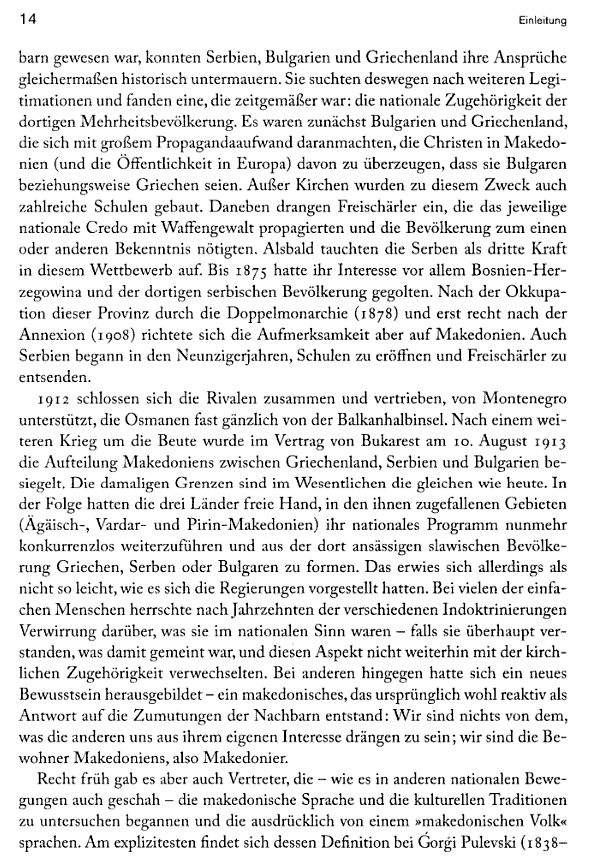
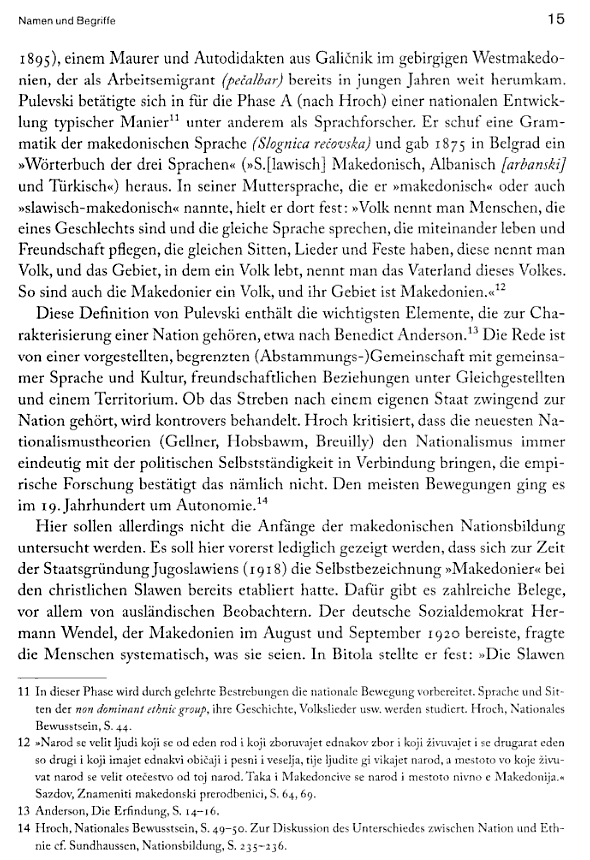
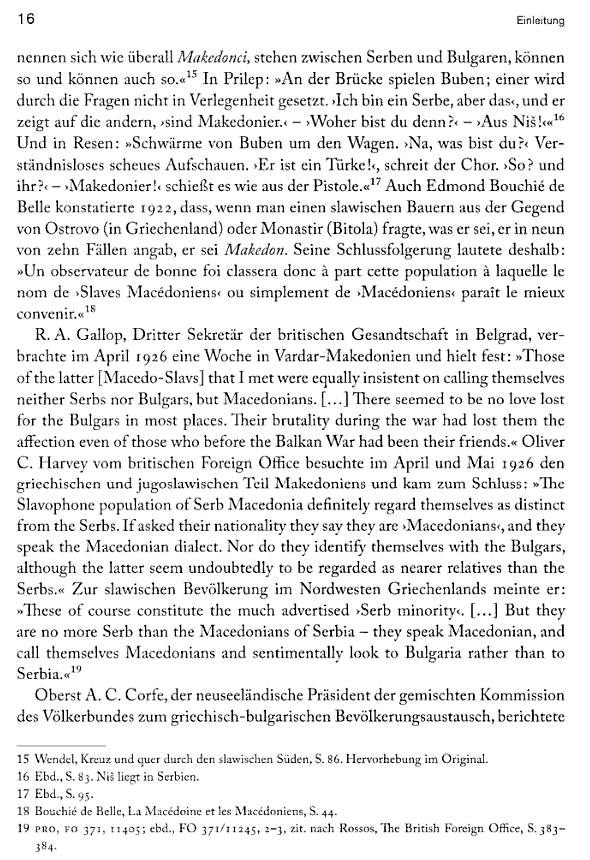
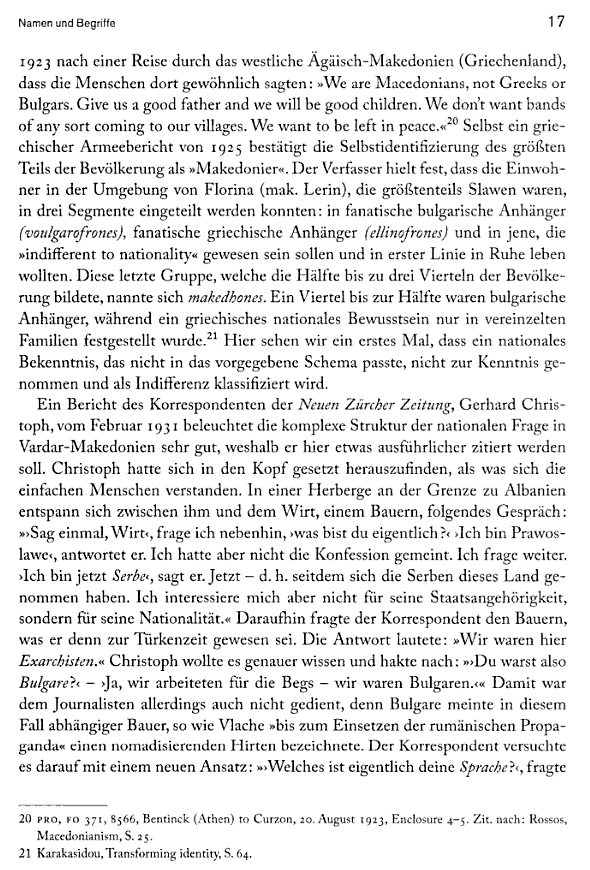
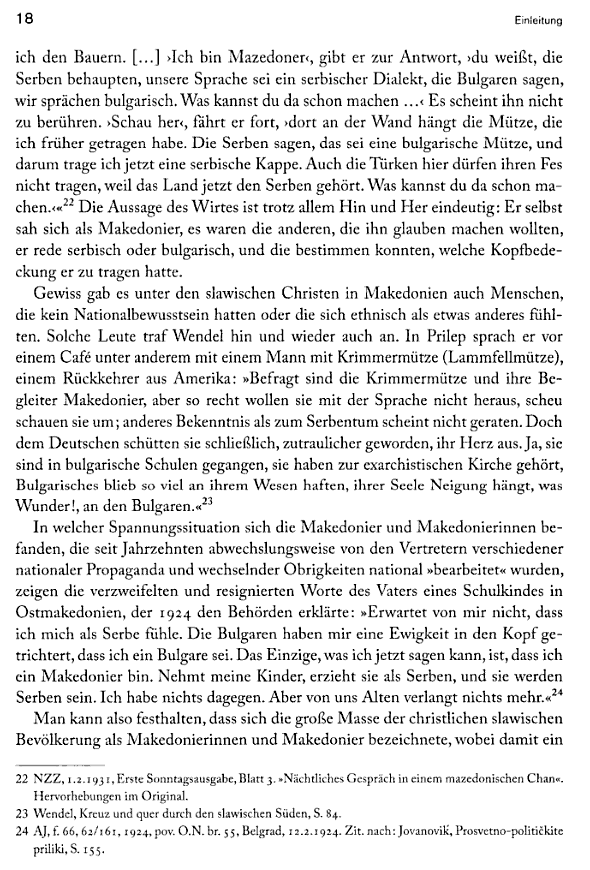
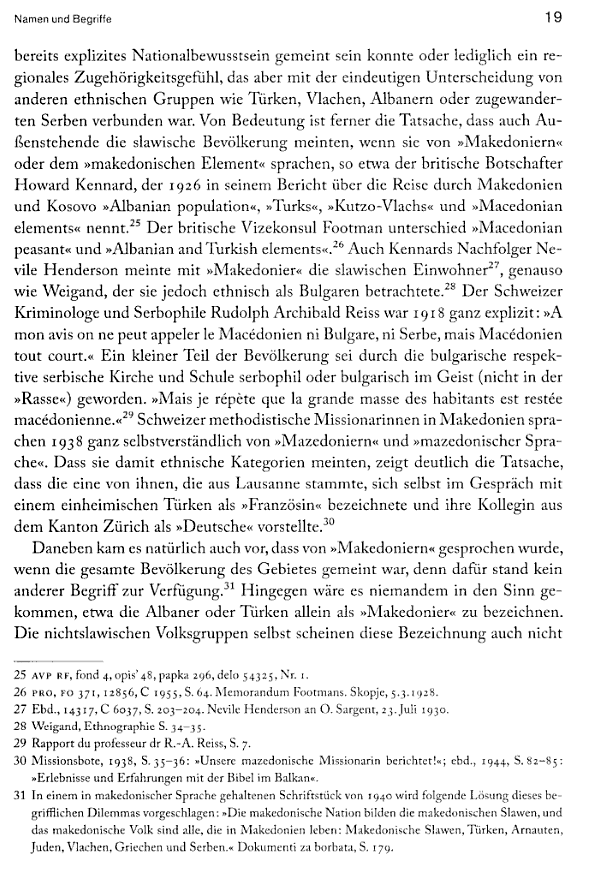
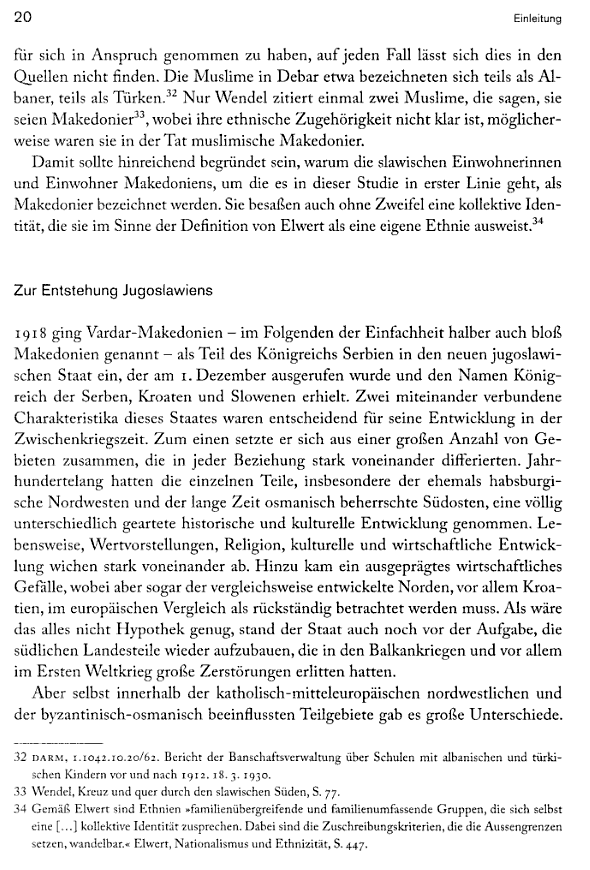



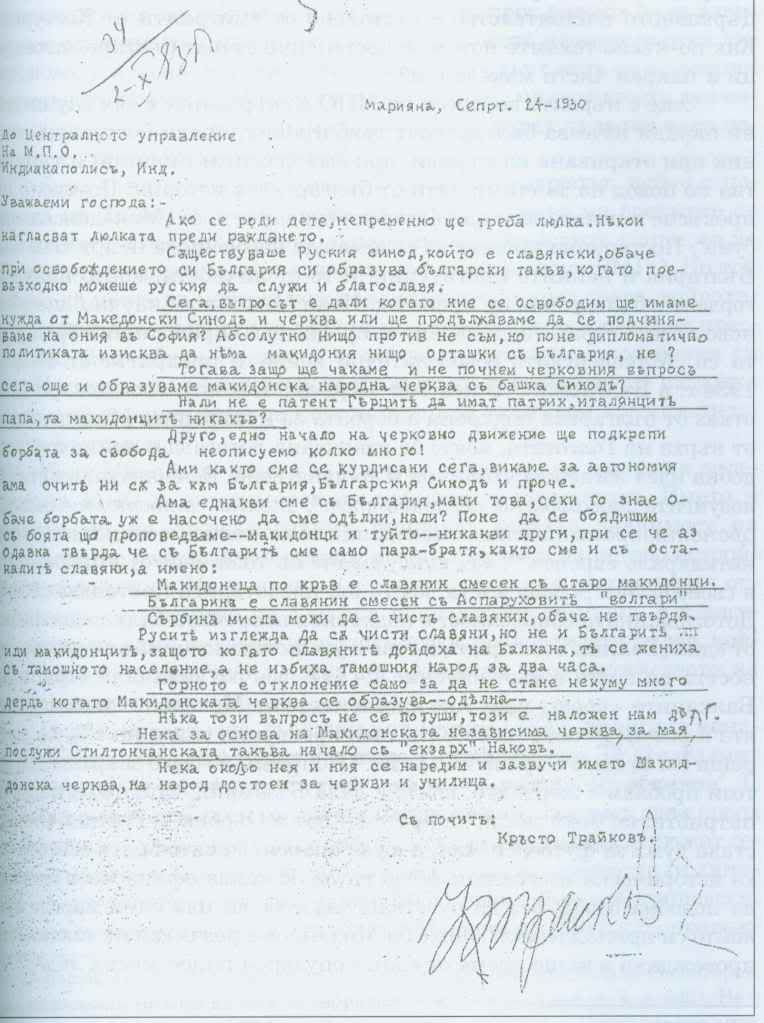
Leave a comment: